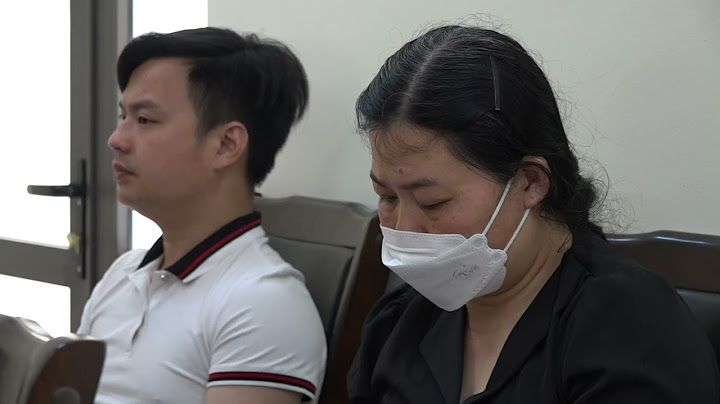There's nothing like a good book, but when you can't manage to commit yourself to a novel, take the short story route. Diane Williams's quick-witted short stories in her new book, "Fine, Fine, Fine, Fine, Fine." Her tales are shorter than short stories, which proves her ability to truly write. It's one thing to write long-form stories and articles, adding distinct details with poetry within the sentences. It's an entirely other thing when you get to the punchline in less than two pages, and that's exactly what Williams does. Each story packs a punch, with 40 new stories as sharp as a needle. With such short stories, they move so quick that you'll find yourself wanting to read it again. Williams nails how we behave in our highest and lowest moments right on the head, giving light to the beating heart of America. Her stories can be discomforting, yet alarmingly funny. If you're looking for something with a bit of a kick, this "Fine, Fine, Fine, Fine, Fine" is your next read. The epigraph of Diane Williams' new collection of funny and alarming stories, "Fine, Fine, Fine, Fine, Fine," comes from a pamphlet called "What You Should Know About Fortune-Telling," written in the 1920s by Jewish-American polymath Leo Markun. One of thousands of Little Blue Book pocket guides for the working class, the pamphlet ultimately warns its readers against fortune-telling as "charlatanry and fraud," but Williams finds the glint of strangeness in this sobering piece of pedantry: "How long will Harry Doe live? ... Who will win the war? ... Will Mary Jane Brown ultimately find a husband ...?" With these questions, at once anonymous and deeply personal, Williams prepares us for what's ahead: absurdist vignettes that linger in the bewildering ellipses between life, death and marriage. In a story called "The Great Passion and Its Context," one of Williams' narrators stands on public transportation with an injured foot, anxiously echoing Markun: "What's still to come? — a warm flat landscape? — a shallow swimming pool? — the complete ruin of her health? — her absolute devotion to anyone?" The only answer comes in the form of children singing a duet three rows ahead of her: "They offer their share of resistance to you name it! — in a remote and difficult key, and in poor taste artistically." If you can hold onto some vestige of poignancy in the face of that ironic exclamation mark and deflating final clause, you've found your new favorite writer. Williams has been plumbing this territory for decades — she's published eight books before this one — and her confidence with language is frankly unnerving. She makes it jump through hoops, and a reader had better be willing to follow. Using repetition, juxtaposition, cliche and non sequitur, Williams defamiliarizes the lives and contexts of her very ordinary characters (who occasionally include "Diane" and her mother, "Mrs. Williams"). Stories, paragraphs and even sentences start out normal and then seem to float off the page In the opener, "Beauty, Love, and Vanity Itself," the narrator gives a pithy snapshot of this off-kilter sensibility: "I never thought a big cloud hanging in the air would be crooked, but it was up there — gray and deranged." Despite this experimentalism (a word Williams herself professes to despise), there is an almost old-fashioned feeling to the vignettes in "Fine." Perhaps this is because the work they call to mind most vividly is that of the early-20th-century avant-garde, particularly Soviet fabulist Daniil Kharms and Swiss miniaturist Robert Walser. There's even a hint of Eugene Ionesco in Williams' banal drawing-room predicaments: a husband invites his wife's ex-lover to dinner, sisters squabble over their mother's possessions, cocktail party attendees yammer at each other endlessly, saying nothing. Moreover, Williams' love of objects lends her miniature worlds a certain plushness. In 2014, Williams told an interviewer for The White Review, "Objects can save us. I might need a certain trinket, for instance, and it may save me for a day, a month." The domestic interiors of "Fine" are cluttered with these little life-savers: gray pottery heads, bracelets of lumpy blue glass, dimpled copper bowls, a glass carafe with a "hand-cut, diamond-and-fan design." Williams is particularly fond of objects that hint at a submerged subjectivity — a "Polish woman statuette," a "round-bodied jar" with "flat shoulders" — or take on animal shapes, like an old Grandville illustration — a "fish dish," "wing chairs." There are several loving descriptions of china, including one particularly romantic set of which she writes: "The gilding was very good — the glaze finely crazed." Note, in that last sentence, how Williams takes advantage of our sloppiest reading habits — skimming past description, nodding along after the em-dash — to slip in a small but perfect anthropomorphism. We want to read "the glaze finely cracked," itself a rich phrase evoking the fragility and strength of a beautiful surface. But, by letting the final word drift toward its rhyme, Williams unmoors us from reason. There are many such double-takes in Williams' prose, but each story contains moments of hilariously overstated clarity as well. In the delightful "Living Deluxe," the narrator announces, "My visitor was nagging at me, which was hurtful to the pride I intend to take along with me into my future." In "Clarinda," a dry observation of a later-life courtship and marriage: "One aspect of the whole situation is that it would soon seem to be normal." Another story about marriage, the excellent "There Is Always a Hesitation Before Turning In a Finished Job," captures the ultimate suburban predicament — settling — in perfectly banal language: "So how much more describing is necessary to assess if we're done expecting something even more fortunate to turn up?" Williams' stories aren't made to answer such questions; they can't predict the future. But they may, like little objects, save you for a day, or a month. |




















